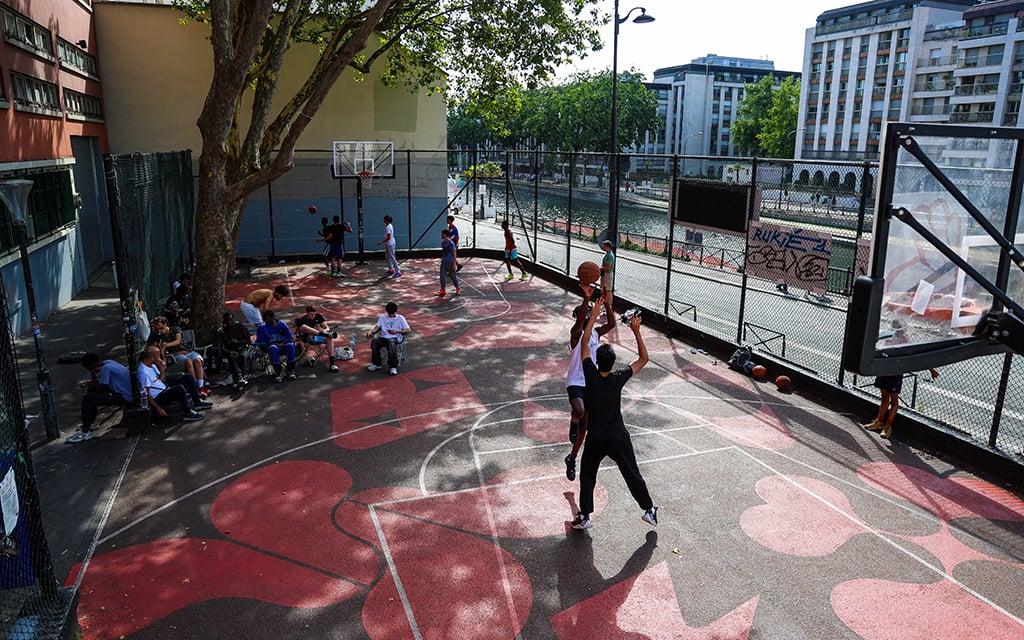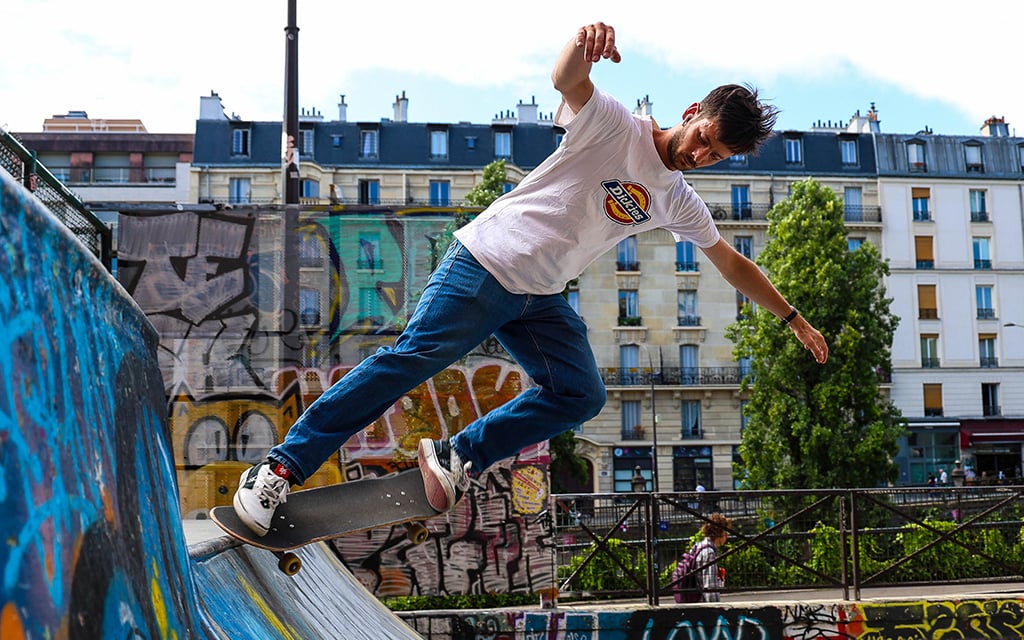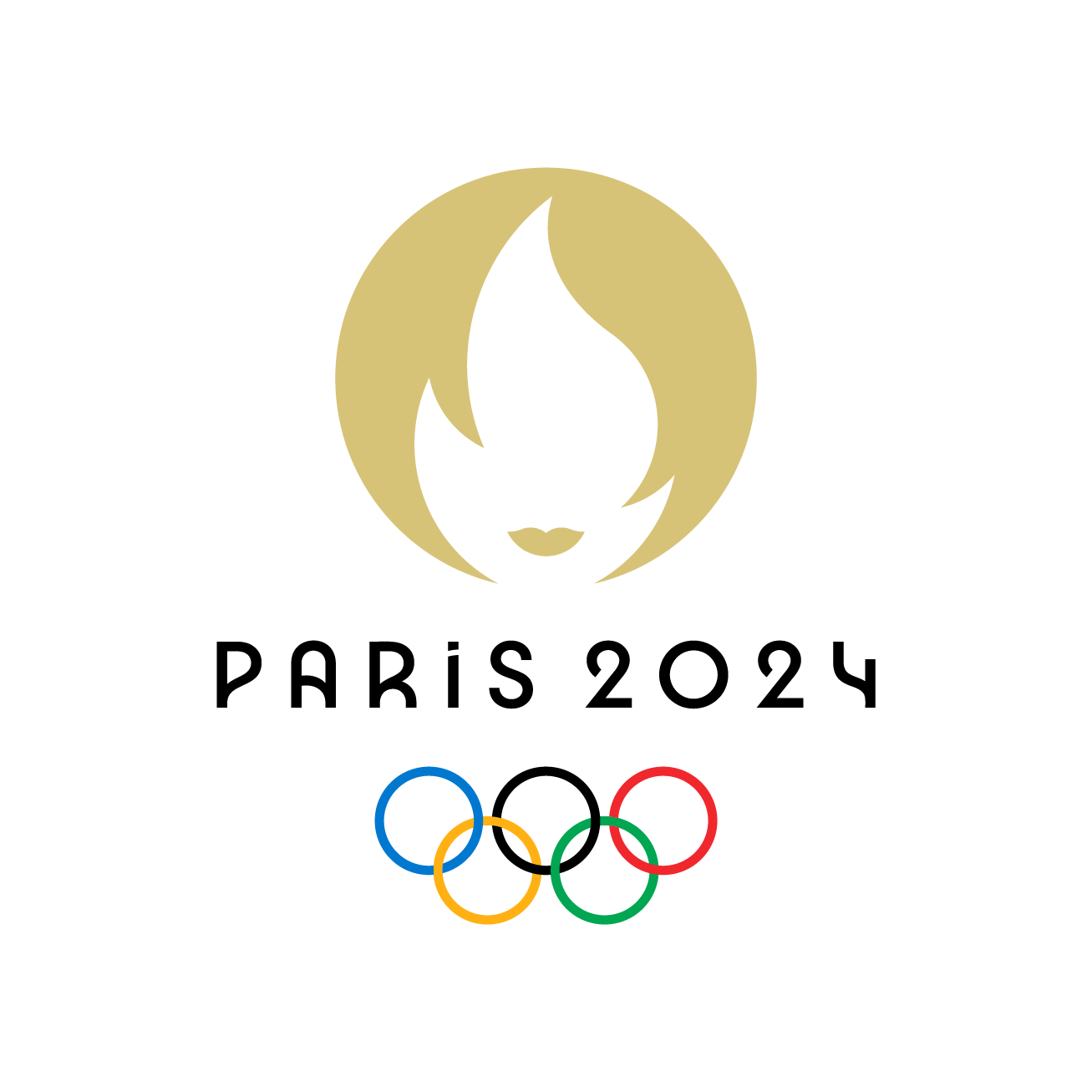PARIS – Hosting the Olympics gives any city a chance to show itself off to the world. Paris, with the Eiffel Tower lit up at night among several glamorous visuals, hardly needed any introduction when the world converged upon the City of Light for the 33rd Olympiad.
Even in such a picturesque atmosphere, the distinct street culture survives the millions of tourists that flock to Paris every year. Graffiti lines many public spaces and is embraced as part of a cultural identity. Among the arrondissements, it might as well be their screaming crowd backdrop as they play against their friends and foes in a little-known, tight-knit community of Paris street sports.
The culture of street sports are as prevalent in Paris as wine by the Seine. Like powdered sugar on a crepe, fenced-in basketball courts and concrete slabs for skate parks can be found throughout the city, often filled with people from sunrise until after sunset. And when the city welcomed the Olympics, the different patriarchs of these families put on their own display for Olympic tourists.
Just steps away from the Eiffel Tower alongside the Paris Tourism Center sits a pop-up exhibition named “Spot 24,” which will run through December and where artifacts and stories of street sports are told to visitors as these disciplines begin to make headway into the Olympic Games. For the 2024 edition, athletes around the world competed for gold medals in 3v3 basketball, skateboarding, breaking, climbing and even surfing.
This mini-museum, dedicated to the ascension of mere street sports to the height of international competition, was designed by curator Francois Gautret to display the culture deeper than the fashion and art on display downtown.
“Spot 24 is an exhibition dedicated to urban sport. The idea of Spot 24 is to talk about the history of urban sport culture,” Gautret said. “The spot is not only about sport, but also about social culture in general. It’s really important at the top of urban culture. We need to have the museum to talk about all the sports as an opportunity for us. It’s an opportunity to be on the big stage and it’s a way of making social change and urban movement in general.”
Gautret, a break dancer by trade, has pioneered this movement on a mission of peace and community. Paris has been hampered in recent years by street crimes such as pick-pocketing and harassment that has made some tourists wary of venturing out beyond the city’s iconic landmarks. For Gautret, it’s his mission to rebuild a safe community for the locals by their own. His format of doing such? The very games and competitions the Olympics contest nearby.
“For me, the idea is to take back the streets for urban sports,” Gautret said. “Breaking, basketball, all these sports, take back the streets where it all began. It’s our community, and it’s made for the people, by the people.”

In the heart of Paris near the Canal Saint-Martin sits a popular park where many people gather to play basketball or simply socialize. (Photo by Spencer Barnes/Special for Cronkite News)
Basketball is arguably the most iconic of all street sports that has rapidly risen in popularity in the last few decades, and generates the most publicity of the Summer Games every four years. Although commonly dominated by the United States on the international stage, this sport specifically has given the French people, and the street sport community, their representative in the mainstream of the NBA.
Former No. 1 overall draft pick and reigning NBA Rookie of the Year Victor Wembanyama is a product of Paris streetball, having grown up on the same courts where local youth hoop deep into the night. As he represents Le Bleu in their chase for glory, and the French 3v3 men’s team already claimed a silver medal in these Games, the camaraderie and competition formed underneath the chain-link nets are now as strong a proving ground to become an established star in the game as any NCAA All-American.
Luyengo Yoana, followed by 45,000 on Instagram, is regarded by many locals as the king of streetball in Paris. Even though NBA prospects such as Wembanyama and Alexander Sarr have come through here, Yoana still takes pride in being a big brother to every young baller that comes through.
“Everybody can play. It’s like a big family,” Yoana said. “It’s not just about basketball (or any other sport). It’s about community. Kids decide to play young and they look at grown people like myself for community, family, how we can help each other in life.”
Even for those who won’t win gold medals or make millions playing these sports, they’re a way of building commonality and giving everybody a place to belong in a city where communal values are harder and harder to maintain. With the sporting world’s eyes trained on Paris, these everyday people need not find themselves in fame, but in family.
“You can meet people from everywhere and every social class,” said Donald Efouba, a local skater. “The Olympics brings our community visibility.”
With their passions televised on a world stage, Spot 24 represents the street sport culture that spans far outside of Paris, and means something to millions of people.
“In such an Olympic exhibition, with nations from all around the world participating in the sports, it’s really a new way to prove to the people that now it’s something important and can allow people to gather around and share communal values,” Gautret said.
“It’s something really global.”



